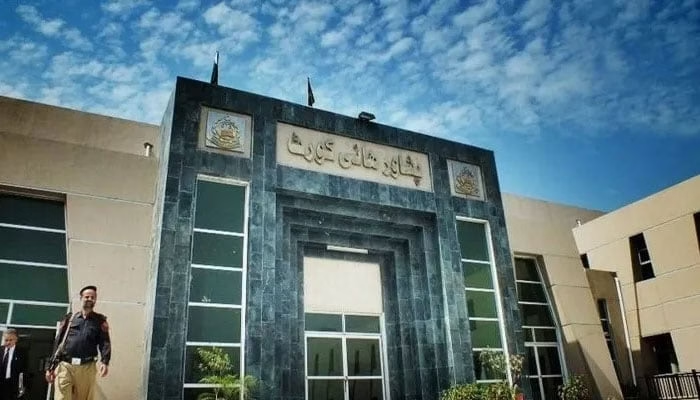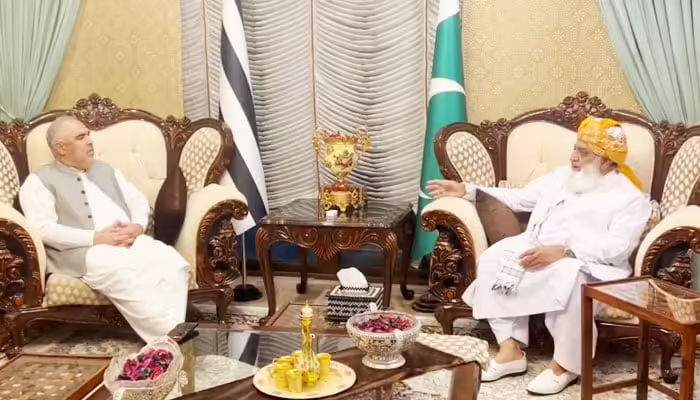In a significant ruling, the Peshawar High Court (PHC) has dismissed 29 petitions challenging military court sentences, reinforcing the special legal framework under which these convictions were issued. The decision has sparked discussions about military justice, counterterrorism laws, and detainee rights in Pakistan.
Court Hearing: A High-Stakes Legal Battle
The PHC hearing saw appearances from:
- The petitioners’ lawyers, advocating for the release of detainees.
- Additional Attorney General Sanaullah, representing the state.
- Judicial Assistant Shamail Ahmed Butt, assisting in legal proceedings.
The petitioners’ legal team argued that the accused had already completed their sentences but were still not released, violating their fundamental rights. They cited legal provisions stating that the period spent in detention should count towards the total imprisonment term.
However, the Additional Attorney General (AAG) strongly opposed this argument, asserting that military court convictions fall under a special legal framework that does not provide certain benefits available in civilian trials.
Government’s Argument: No Legal Relief Under Military Law
The Additional Attorney General defended the military court’s sentencing system, stating:
These individuals were convicted under the Army Act, and their sentences commence only from the day of official signing.
This directly contradicts the petitioners’ claim that their detention period should be included in their sentences. The AAG further stressed that the convicted individuals were involved in terrorist activities and do not qualify for legal leniency or sentence reductions.
A key legal provision debated was Section 382B of the Pakistan Penal Code, which allows detainees to count their pre-trial detention towards their final sentence. However, the state argued that:
- Military court verdicts operate under a separate jurisdiction where 382B does not apply.
- Terror convicts should not be granted any legal concessions.
PHC’s Final Ruling: Petitions Dismissed
After hearing arguments from both sides, the Peshawar High Court swiftly delivered a verdict, dismissing all 29 petitions. The ruling upheld:
- The legitimacy of military court sentences.
- The government’s stance that 382B does not apply to military convictions.
- The state’s authority in handling terrorism-related offenses through special courts.
With this judgment, the PHC has effectively reinforced Pakistan’s military justice system, sending a clear message that special terrorism laws remain intact and enforceable.
Impact of the Verdict: What It Means for Future Cases
This landmark ruling carries significant implications for future military court cases, particularly those involving terrorism-related convictions. Here’s what it means:
1. No Sentence Reduction for Military Convicts
The court’s decision means detainees convicted under military courts cannot benefit from sentence reductions that apply under civilian legal systems. This sets a precedent for similar cases in the future.
2. Strengthening of Military Court Verdicts
By upholding the military court’s sentencing authority, the PHC has reinforced the legitimacy of military trials for terrorism cases, signaling tougher legal action against individuals convicted of terror-related offenses.
3. Possible Appeals to Supreme Court
While the PHC has dismissed these petitions, legal experts believe the petitioners may take their case to the Supreme Court for further appeal. However, given the government’s strong stance, the likelihood of overturning the verdict remains slim.
Public Reaction and Legal Debate
The court’s decision has sparked debate among legal analysts, human rights groups, and the general public. Supporters of military courts argue that:
- Strict counterterrorism laws are necessary to maintain national security.
- Terror convicts do not deserve legal concessions that could allow them back into society.
- Military courts ensure speedy justice for serious offenses.
On the other hand, critics believe:
- Denying detainees basic legal rights can create a human rights issue.
- Applying different legal standards to military and civilian courts can lead to legal inconsistencies.
- Lack of transparency in military trials raises concerns about due process.
A Precedent-Setting Decision
The Peshawar High Court’s dismissal of 29 petitions is a major legal development in Pakistan’s counterterrorism framework. It reinforces the authority of military courts, limits legal concessions for terror convicts, and sets a new precedent for future cases.
With ongoing discussions about military courts and Pakistan’s security policies, this case highlights the complex balance between justice, national security, and human rights.



